Publications
Articles, publications, books, tools and multimedia features from the U.S. Institute of Peace provide the latest news, analysis, research findings, practitioner guides and reports, all related to the conflict zones and issues that are at the center of the Institute’s work to prevent and reduce violent conflict.
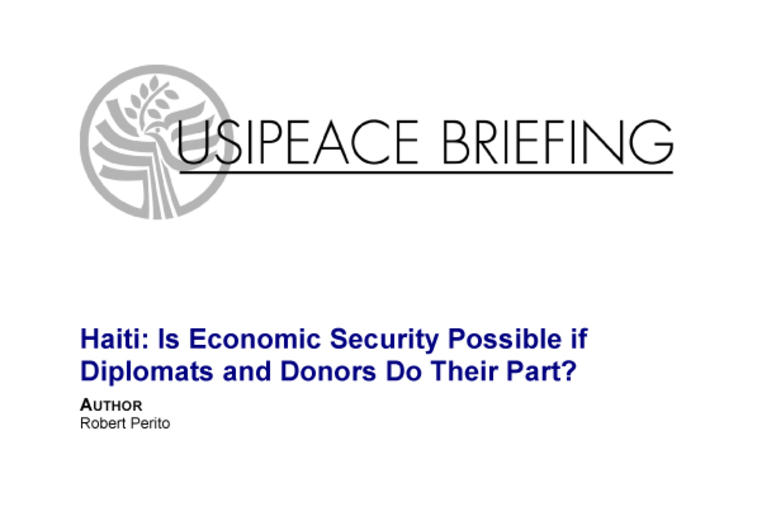
Haiti: Is Economic Security Possible if Diplomats and Donors Do Their Part?
In 2009, Haiti has been the subject of an unprecedented diplomatic initiative led by the United Nations. In rapid succession, Haiti received visits from the UN Secretary General Ban Ki-moon, the UN Security Council, former President Bill Clinton and Secretary of State Hillary Clinton and numerous senior delegations from Caribbean and South American countries
Counting the Costs of Somali Piracy
Authored by USIP's Raymond Gilpin, this new working paper offers practical strategies to mitigate the rising costs of Somali piracy and lay the foundation for lasting peace. The upsurge in attacks by Somali pirates between 2005 and mid-2009 reflects decades of political unrest, maritime lawlessness and severe economic decline which has dire implications for economic development and political stability in Somalia.
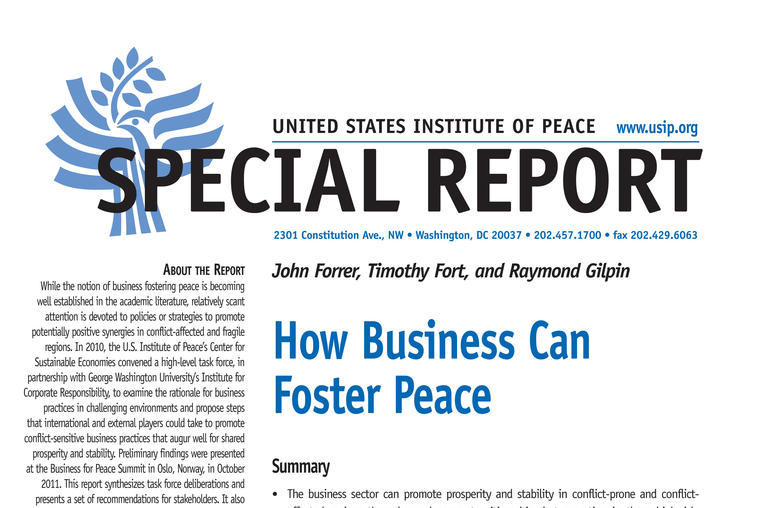
How Business Can Foster Peace
There are many ways businesses can and do promote peace in conflict zones, but smart strategies will take into account the firms’ size, ownership, industry, and the degree to which they are connected to local supply chains.
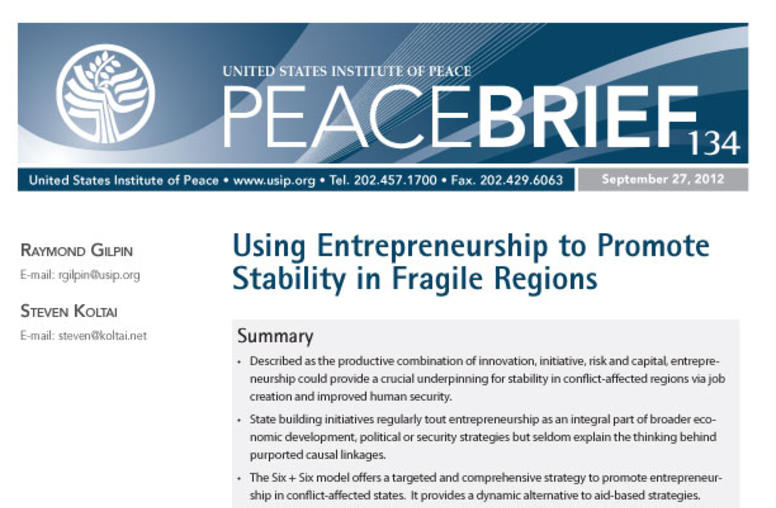
Using Entrepreneurship to Promote Stability in Fragile Regions
USIP’s Center for Sustainable Economies hosted a series of blogs on entrepreneurship in conflict-affected states on the International Network for Economics and Conflict from March to July 2012. This Peace Brief synthesizes the main conclusions and pertinent lessons for policymakers and practitioners.
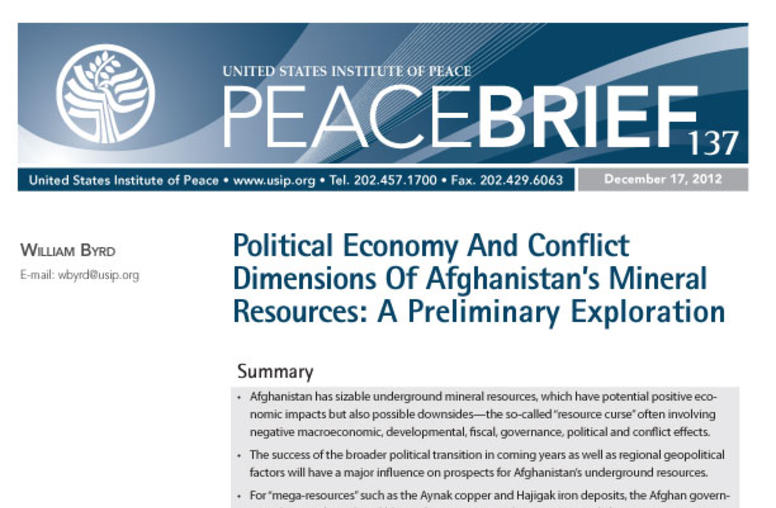
Political Economy and Conflict Dimensions of Afghanistan’s Mineral Resources: A Preliminary Exploration
This paper reflects some initial thinking on the mining sector, in the context of his broader interest in the political economy and conflict implications of sizable financial flows in Afghanistan, also including those generated by illicit narcotics and aid.
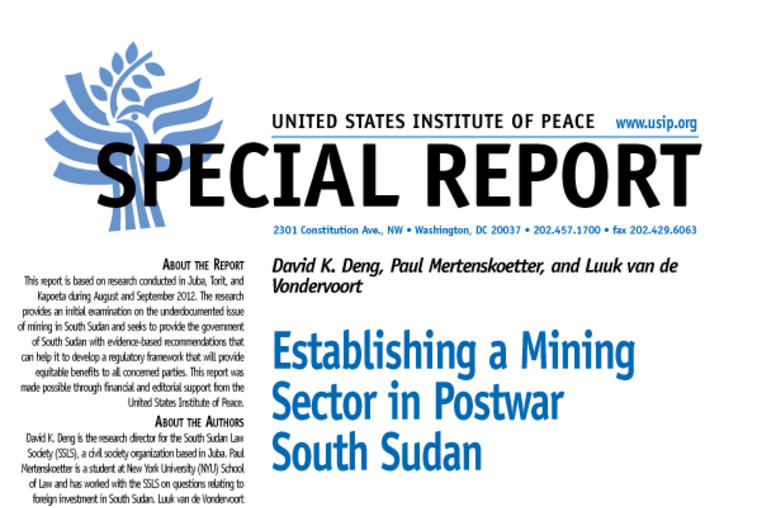
Establishing a Mining Sector in Postwar South Sudan
South Sudan has untapped mineral resources, and its government is striving to set up a regulatory framework that will ensure the equitable distribution of the benefits of its mineral wealth. If it takes key steps to secure the informed consent of the affected landowning communities, the government can reduce the potential for unrest and conflict around future mining ventures.
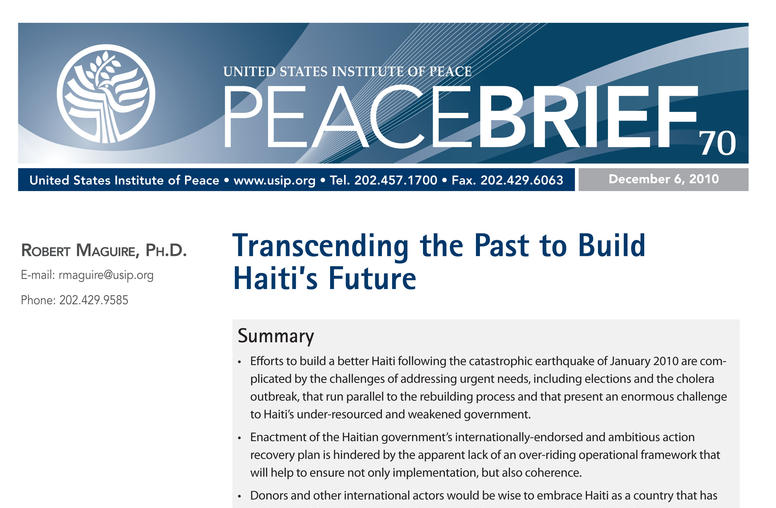
Transcending the Past to Build Haiti’s Future
This Peace Brief is based on a public forum and meeting of USIP’s Haiti Working Group on October 29, 2010. The featured speaker was Michèle Duvivier Pierre-Louis, former Prime Minster of Haiti (2008-2009). Robert Maguire, Chair of USIP’s Haiti Working Group and Associate Professor of International Affairs at Trinity Washington University, was a discussant. Robert Perito, director of USIP’s Haiti Program, served as moderator.
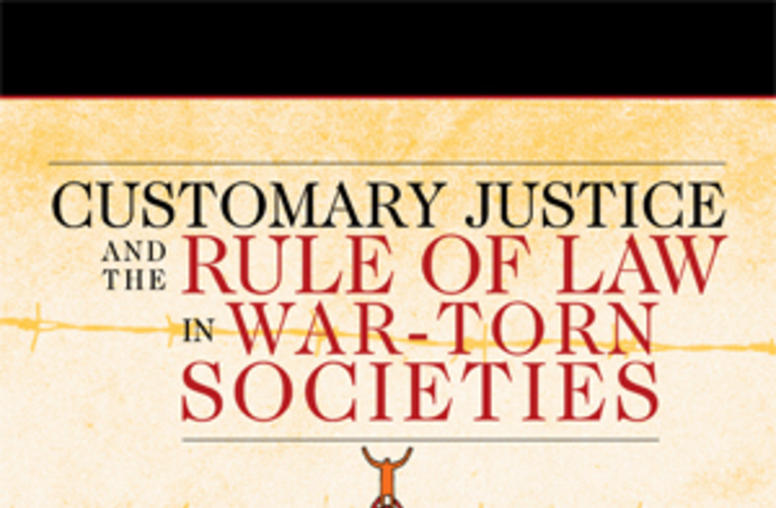
Customary Justice and the Rule of Law in War-Torn Societies
Customary Justice and the Rule of Law in War-Torn Societies presents seven in-depth case studies that take a broad interdisciplinary approach to the study of the justice system. Moving beyond the narrow lens of legal analysis, the cases—Mozambique, Guatemala, East Timor, Afghanistan, Liberia, Iraq, Sudan—examine the larger historical, political, and social factors that shape the character and role of customary justice systems and their place in the overall justice sector.
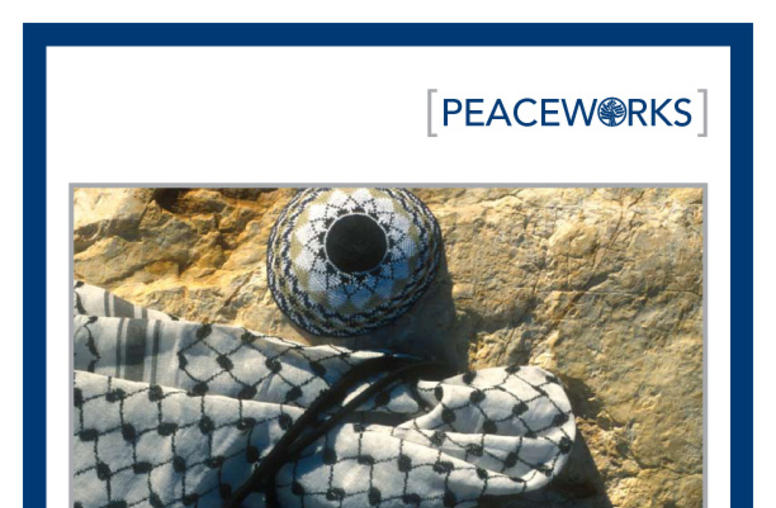
Arab-Jewish Relations in Israel
Israel is and remains a deeply divided society of some 5.6 million Jews and some 1.2 million Palestinian-Arab citizens. Sammy Smooha, a 2009-10 Jennings Randolph Senior Fellow at the U.S. Institute of Peace addresses attitudes and the divisions surrounding the Arab-Israeli conflict.
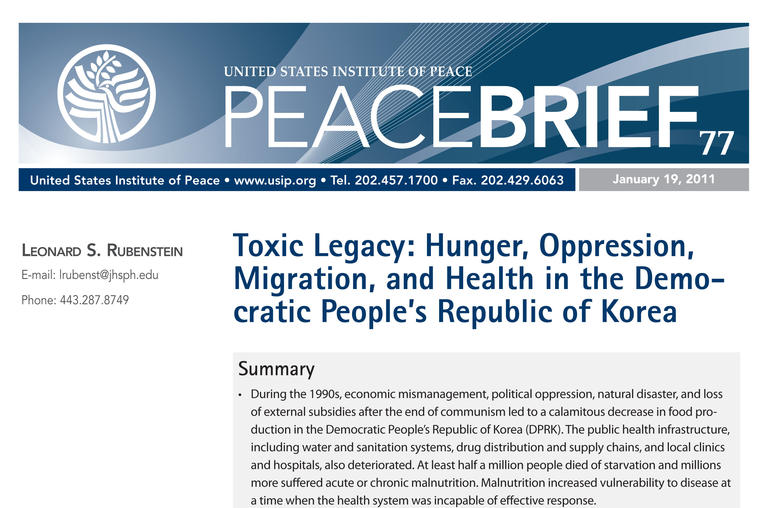
Toxic Legacy: Hunger, Oppression, Migration, and Health in the Democratic People’s Republic of Korea
This Peace Brief explores the current health status of North Korea, initiatives to strengthen the health system, the potential impact of migration and informal markets on health, and prospects for the future health of the population.